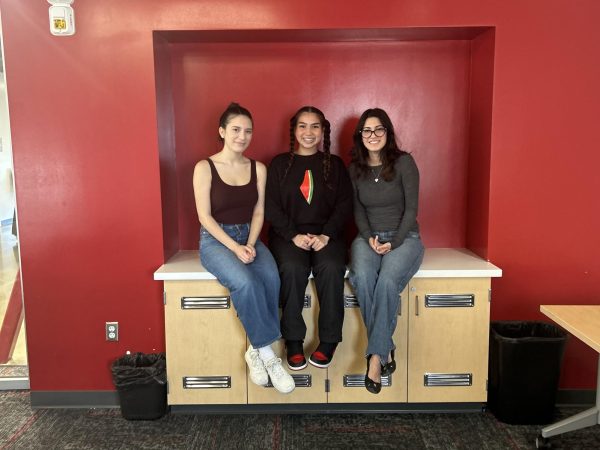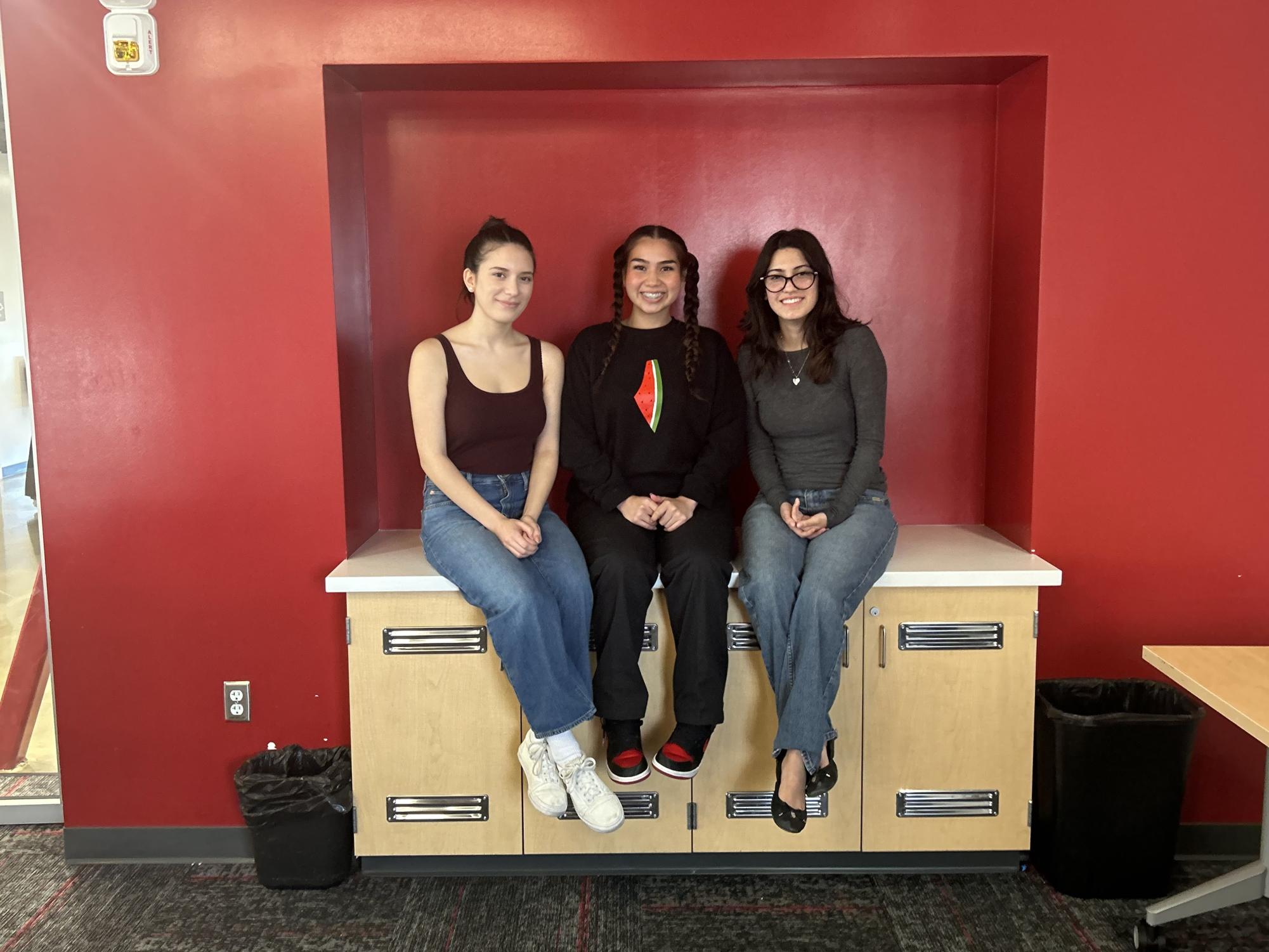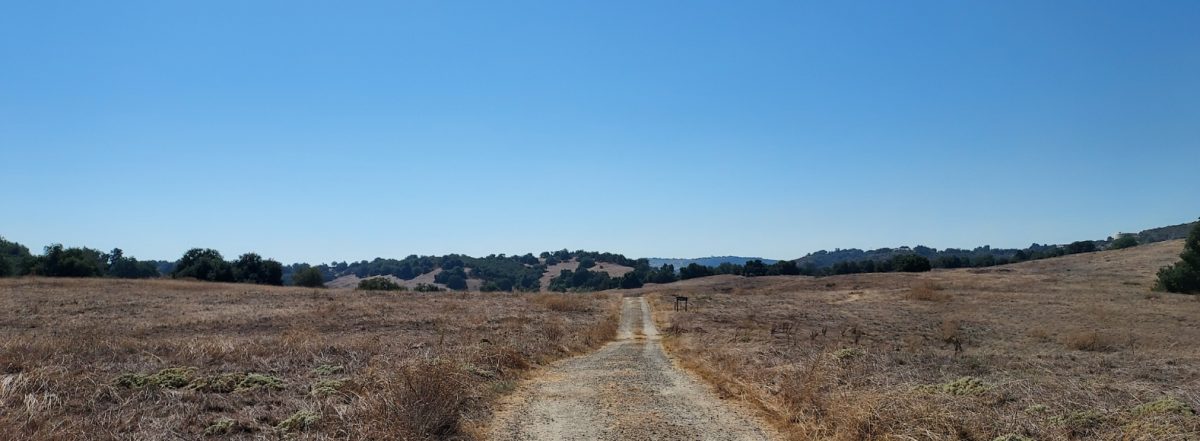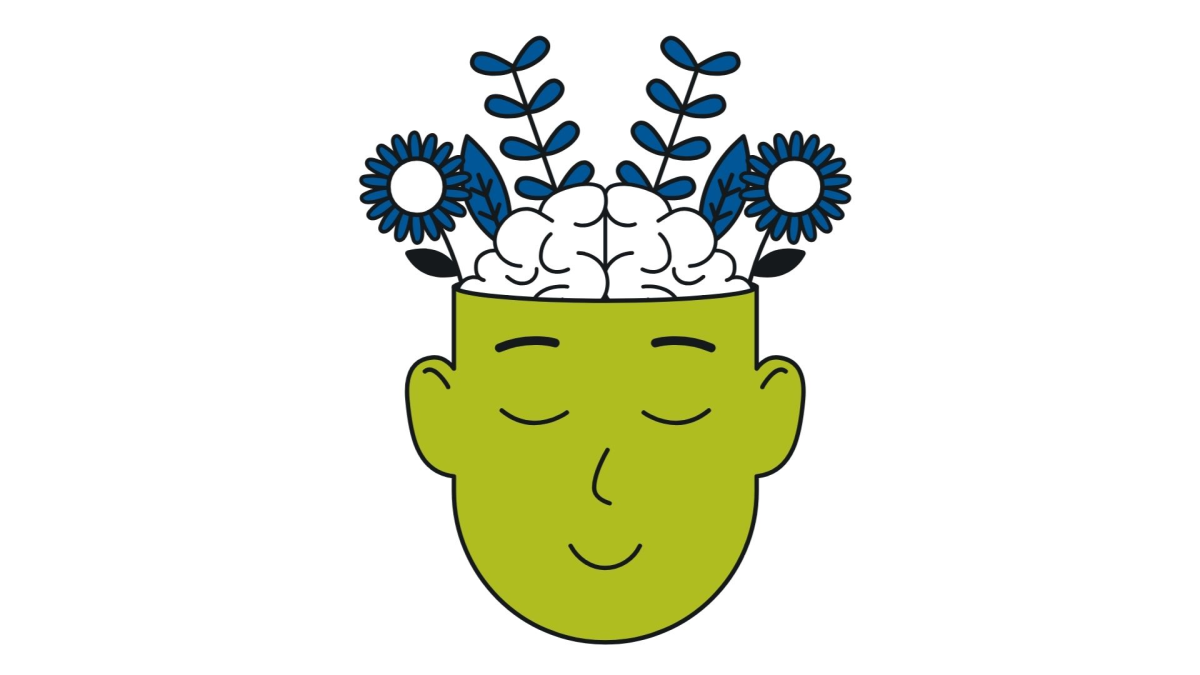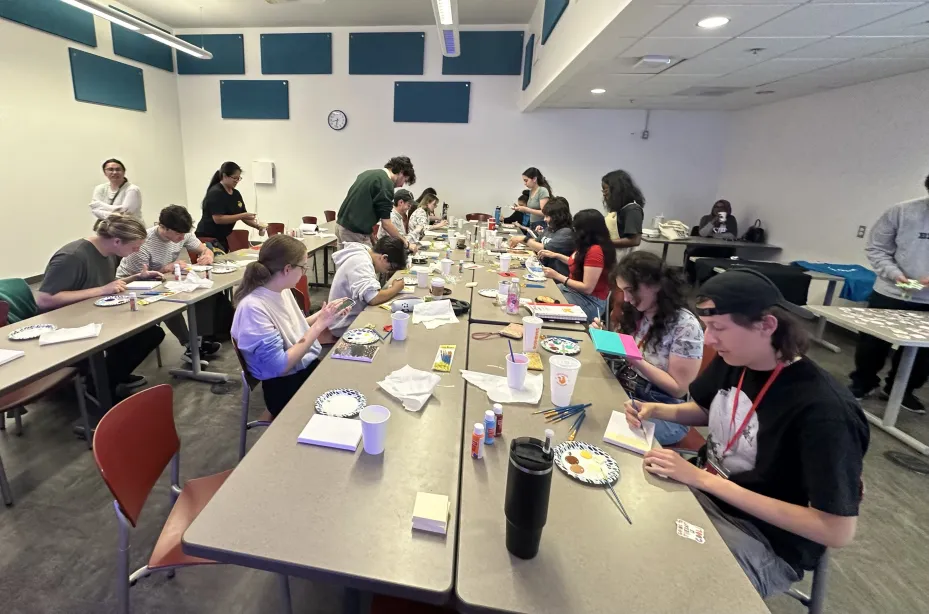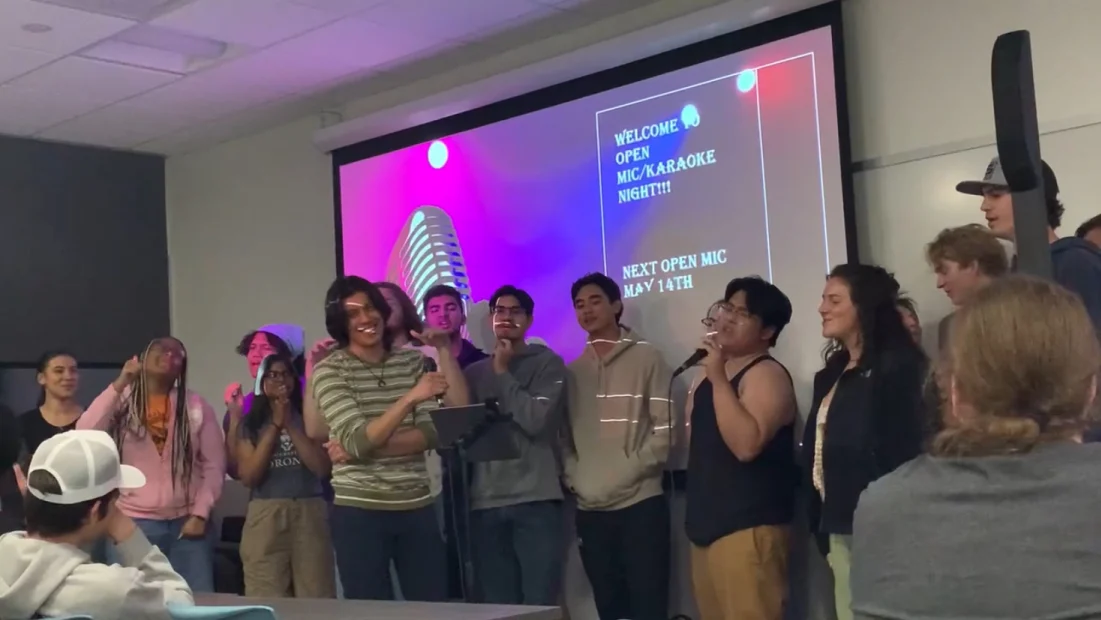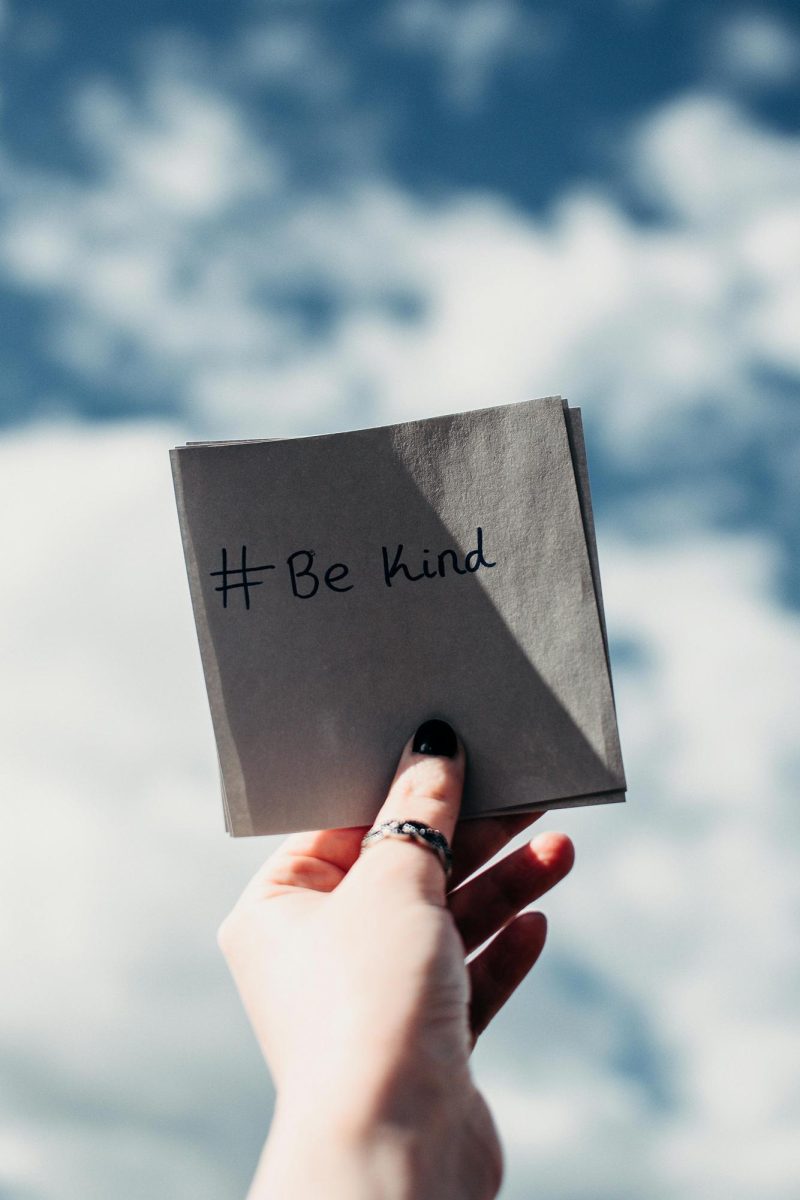At MSJC this club is a branch of the international human rights organization, Amnesty International. The club and the organization’s main goal is to educate and advocate for global human rights injustices.
What made you decide to be in the Amnesty Club?
Esquer mentions that she has always been passionate about advocacy— “Amnesty has proven to be a leader in making a difference through Grass Roots activism.” Small actions committed by these organizations, like writing letters, and petitions, especially protests, have erupted in an outpouring of positivity that caused changes for the better. Amnesty’s impact on its 10 million members worldwide has been a consistent depiction of how important this organization is for many people. Over time, where support was needed, Amnesty came together to fight for meaningful causes. They have proven through their empathy and followed through with unwavering support every time.
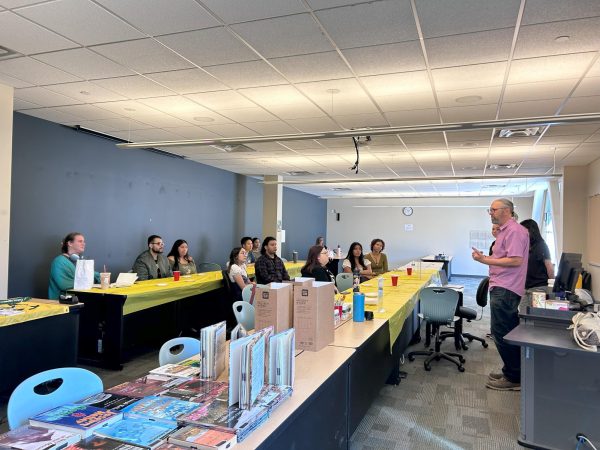
What is an issue, whether personal or relevant to us/current political climate, you think, should be spotlighted?
The club conducted an art activity for their first event, an art activity to promote awareness of banned books. “Not only are we saying that banning books is harmful… we believe that any type of censorship in the media, … goes against our First Amendment…. right now, we have seen an increase in book banning all across the nation.”
Esquer added that there is a trend that follows these book bans, which is the attack on marginalized groups such as, LGBTQ+ and people of color. She highlights that because of this, issues like racism and homophobia are trampled down due to censorship. This harms education and speech, which many people use to raise awareness. To have that freedom and right taken away diminishes an avenue people employ to teach and learn from various issues.
How do you think your leadership role supports the causes of this club?
“It’s not just my job to have this conversation; it’s all of our job … to work together [and] fight for causes that we all care about,” Esquer emphasizes that as president to her, it is simply a label, not a barrier that distinguishes herself from other students. Fighting for causes that, “we all care about” is her main focus. She desires to create a community that comes together for a common cause: to make a difference collectively.
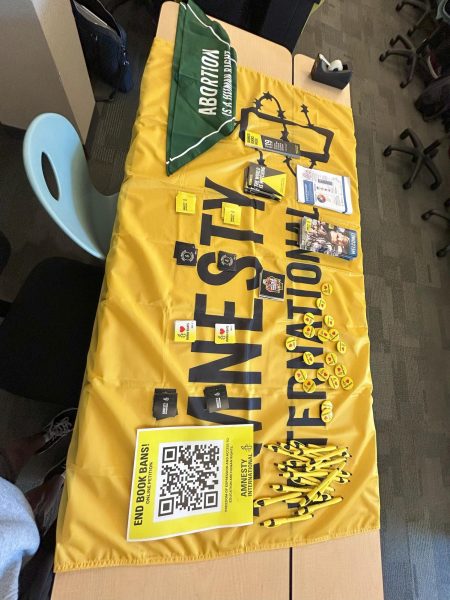
Where would you like to take the club?
Esquer answered, “My goal for this semester … to make a difference on campus and get the word out there about issues that matter. Together, we have created an environment … where 20+ people [are] … willing to support us and this movement.”
It is clear how much impact Amnesty Club has amassed in such a short time. After briefly making an appearance in their first club meeting, I noted the great number of people who showed up. After the meeting, I congratulated Esquer on the amazing turnout, and she excitedly replied, “After you left, even more people showed up.” This is a testimony to exactly how much Esquer’s desires for the club are rooted in the ground to grow into something otherworldly.
Later in the semester, President Esquer hopes to have other clubs join to “take an action to support a cause.” She emphasizes on a fair unanimous vote on a cause to shed light on. In particular, she wishes for a mural chalking event where we all come together to create art about issues Amnesty Club is fighting for. An action that not only spreads awareness but, is also interactive and fun, where people all over the Menifee Campus can participate in.
Through this, Esquer hopes to focus on the enjoyable aspect of the club amidst issues that might discourage students from fighting for them. That persistence and unmitigable support students are willing to give is worth more than it may seem—a token of their action depicted through art. Esquer highlights collective mobilization, and through this particular event and across the 10 million members of Amnesty International, a difference can be made.
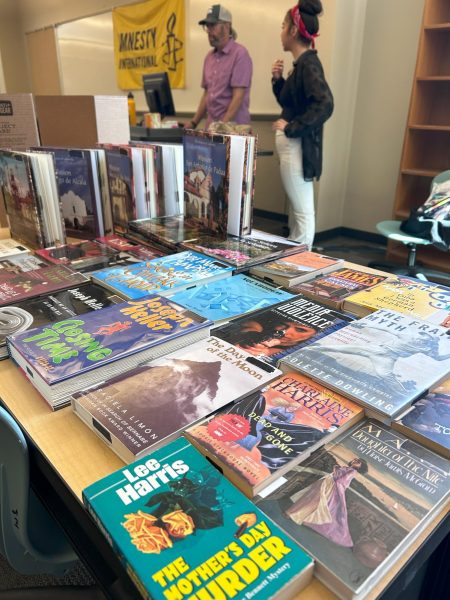
How would you navigate through students who have firm beliefs that negatively affect other students fighting for causes that matter to them?
Esquer expressed that the club has already experienced a couple of students who proudly expressed their disagreements on certain issues the club fights for, and with this, she states that, “everybody is entitled to believe what they want to believe; however, … through education I think that we can really break those barriers.” Understandably, not everyone is going to agree on one thing, which in of itself is not entirely bad. However, as Esquer stated, it comes down to having a conversation and informing one another about each perspective, and hopefully, a breakthrough occurs.
“Amnesty is non-partisan … I know many people like to politicize many of the issues we fight for, but it really doesn’t have anything to do with any party or political affiliation, … it’s on the basis of human rights.” Says Esquer. The main goal of collective advocacy is to move in the right direction to enact change for the better. Convincing people who are firm in their beliefs is not the club’s focus; instead, it is the opposite. Amnesty Club highlights issues and supports students with similar views, and through activism they seek out to amplify their voices.
Outside of the club, how do you advocate for civil rights?
Esquer mentioned that for quite some time now, she has always been loud about her beliefs and the issues she fights for, whether through social media or even a simple conversation. Through Amnesty Club, the first and only club she has ever joined, she wishes to get more involved in her community and hear about their wishes and desires for causes that are worth conversations and direct action. Esquer briefly mentioned that no matter how tame a voice is, it is still far from voiceless, and to emphasize this, her and Vice Presidents; Grace Roussett and Cassandra Jara’s action to start this club as three people, has now trickled into even more, a number that is only growing. The tireless persistence they plant can be seen through the fruits of their labor. This shows just how impactful one thought, belief, or action can become, something greater than what it started as.
Are there any famous activists who influenced/inspired you to start this club?
While no particular political figures or activists inspired Esquer, there are groups of people, rather students, who have cemented a profound influence on her. Specifically, last year’s president, Miray, “She was incredible and putting in the work to get this club started. Her passion was so obvious … when you have a conversation with her, you can tell she’s a very passionate person.” Esquer details that knowing people like Miray, who you can immediately see their passion radiate off of them, helped inspire her to fight like them.
Ready to Make a Change?
On Wednesday, October 23 from 10-11am, in front of the 800 building at the Menifee Campus, there will be a Chalk For Change event. A campaign that advocates for refugee and migrant rights. Come by, bring a friend (or two) and show your support!
To know more, follow them on Instagram @msjcamnesty or, click their direct Linktree, filled with resources and infographics: Amnesty International MSJC Club
Meet The Amnesty Team
